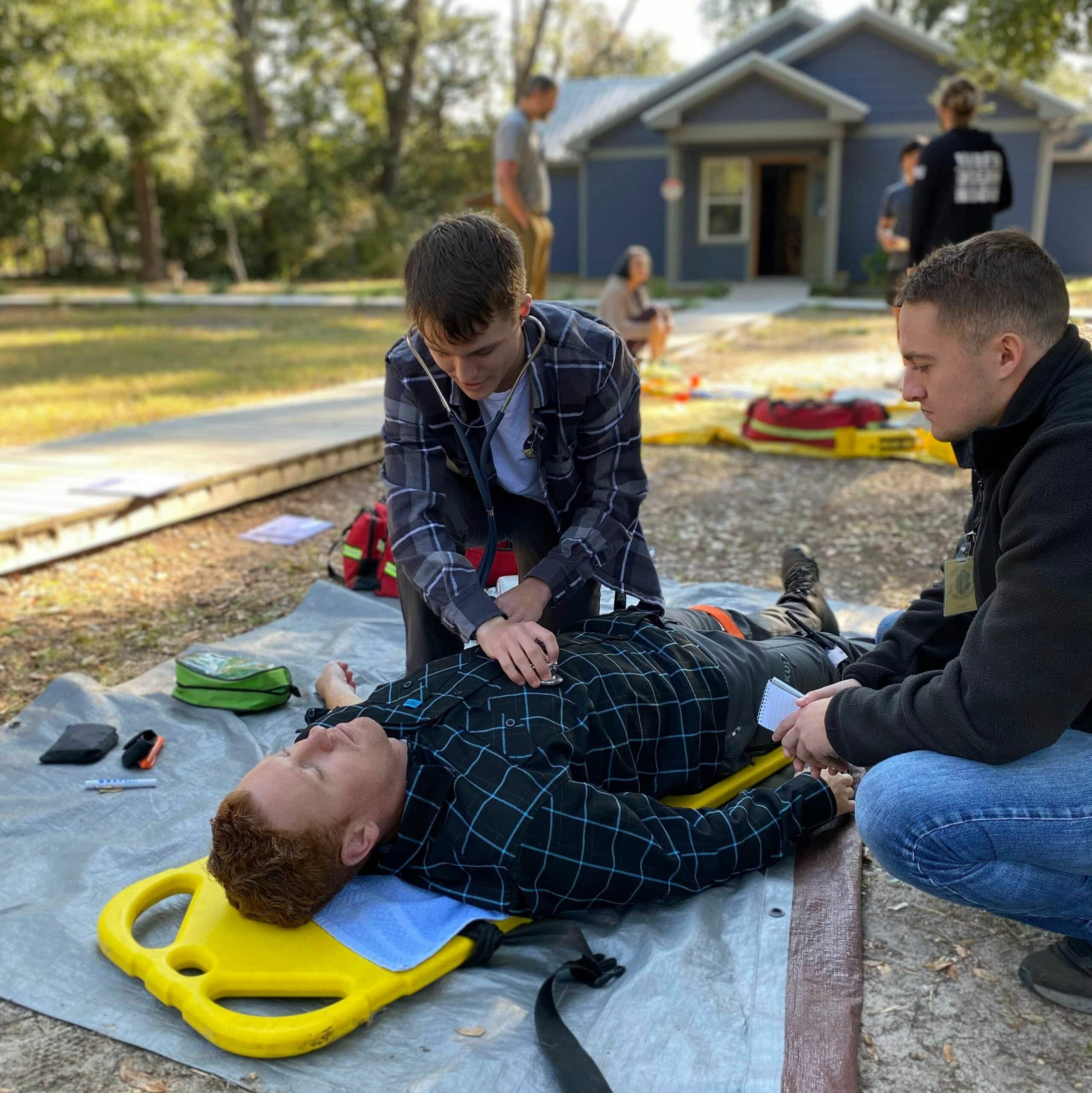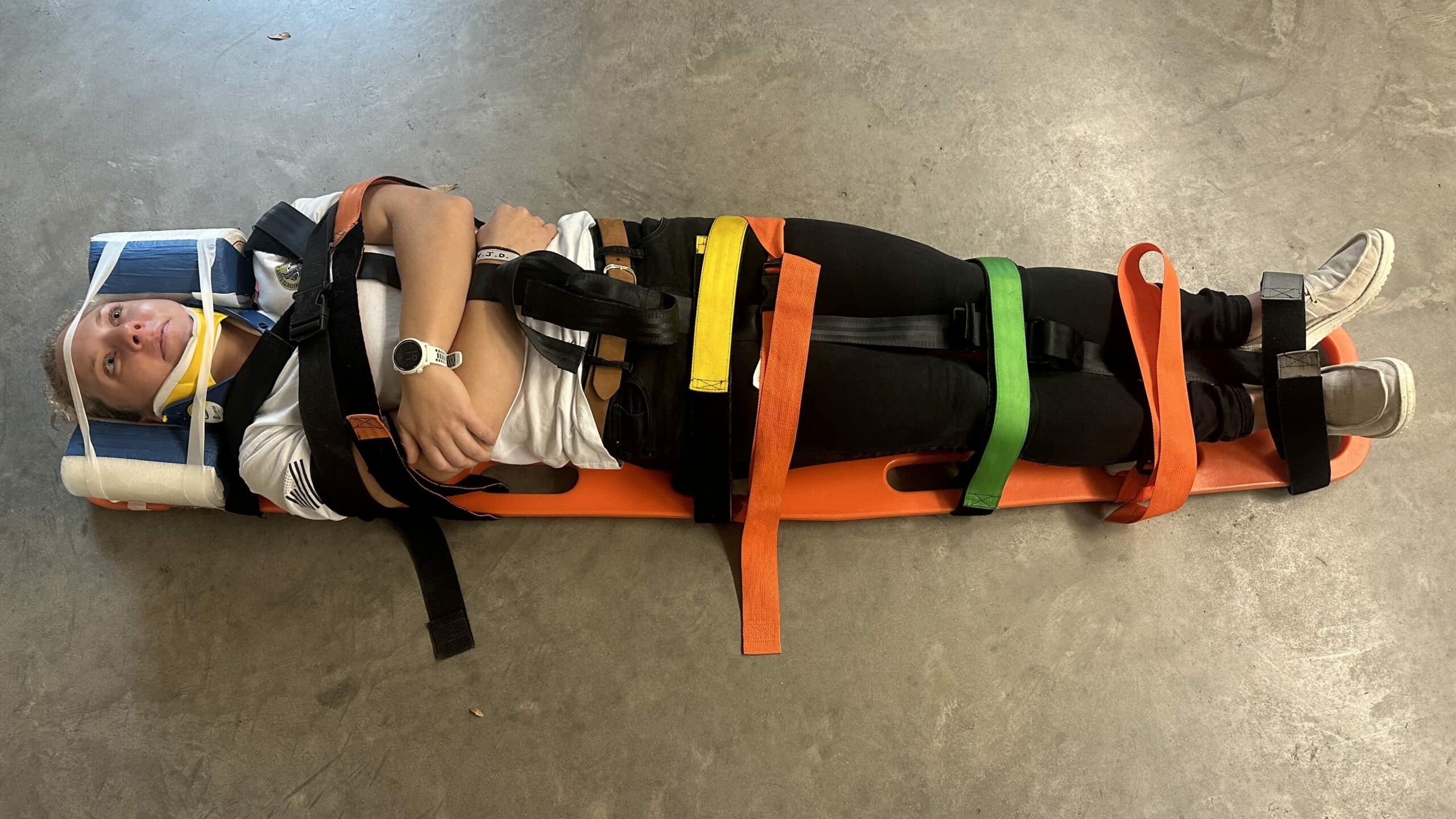EMT Health and Fitness: How to Stay Physically Strong and Mentally Sharp
Emergency MedicineIt’s been my experience that emergency medical personnel — including Emergency Medical Technicians (EMTs) — tend to be much better at caring for others than for themselves. That’s generally the result of long shifts, life-or-death situations, and consistently helping people who are suffering the worst day of their lives. It’s going to take a toll.
To compound the problem, those who work in emergency medicine often neglect their own health and fitness. They forgo exercise, reach for junk food because it’s often handier. Or they begin to seek out various substances to get through the day. These might include energy drinks during their shift so they can remain alert. Or maybe a drink or three when they’re off the clock to calm their nerves and help them sleep.
Eventually, this unhealthy lifestyle catches up to them, negatively impacting their mood, energy, intimacy, and more.

The multi-billion dollar a year health and fitness industry offers little in the way of relief for those in our field. And often overlooked is the overworked and stressed-out Emergency Medical Systems (EMS) shift worker.
If you’re a member of that demographic or you’re considering an EMT training and certification program like our Standard EMT, Hybrid EMT, or Wilderness EMT, don’t wait around in the hopes of that industry or even your own EMS unit will be reaching out to you. Make this your wake-up call. Now is the time to start focusing on your own health and fitness.
Remember the lesson you’re taught when you board an airplane — put your oxygen mask on first before helping anyone seated next to you with theirs. In the same way, you need to focus on your own health first in order to be healthy and fit enough to assist others when they’re experiencing a medical emergency. And continue that health regimen so you are healthy enough to make a lasting career in emergency medicine.
In this post, I provide practical advice on how to restore and maintain your own physical and mental health and fitness over the long haul.
Manage Stress
Stress kills. We are all well aware of its negative impact on health, but what we need to realize is that a great deal of our stress is self-inflicted. After all, we’re the only ones who can (more…)
Spinal Immobilization or Spinal Motion Restriction: Which is Safest?
Emergency MedicineFor decades, spinal immobilization (SI) has been the standard practice when moving trauma patients with potential spinal injuries. Indeed, this particular procedure has long been commonplace for patients injured in the backcountry. Spinal immobilization involves the use of various devices, including a long spine board (LSB) and a cervical collar to stabilize the spine and prevent further injury.

However, recent research has called this practice into question. In fact, while current techniques limit or reduce undesired motion of the spine, they do not succeed in fully immobilizing the spine. For this reason, the term “spinal motion restriction (SMR)” has gained favor over “spinal immobilization.”
Both terms refer to the same concept — minimizing unwanted movement of the potentially injured spine. However, while LSBs have historically been used to attempt spinal immobilization, SMR may be achieved using a scoop stretcher, vacuum splint, ambulance cot, or other similar device to which a patient is safely secured.
The National Registry of Emergency Medical Technicians (NREMT) defines the term “spinal immobilization” as the use of adjuncts (LSB, cervical collar, etc.) to prevent movement of the spine. The term “spinal motion restriction” is defined more broadly as attempting to maintain the spine in anatomic alignment and minimizing gross movement — irrespective of adjuncts.
Evaluating the Efficacy of Spinal Immobilization
The effectiveness of the LSB to prevent further trauma to the spine has never been proven in high-level trials. Its use was adopted largely by consensus and not driven by data from any formal studies. An extensive literature review on the history of not using the LSB as a tool concluded that it is ineffective and may be detrimental by delaying time-sensitive treatments for some patients.
A study published by Cambridge University Press examined patient outcomes over a decade during which Emergency Medical Service (EMS) systems decreased backboard use as they transitioned from SI to SMR protocols. The study included (more…)
Maintaining Resilience and Mental Health in the EMS Profession
Emergency MedicineThe suicide rate among emergency medical service (EMS) professionals rose a shocking 38 percent since 2009, according to a study published in the Western Journal of Emergency Medicine. But as shocking as that statistic is, it should come as no surprise.
As an emergency medical technician (EMT) or paramedic, you typically work a five-day rotation of 12-hour shifts (days or nights). You may start the week working Monday and Tuesday and then have Wednesday and Thursday off. You spend half your first day off catching up on sleep, doing chores, and running errands. You’re free the next day, but pretty much alone because everyone you know is at work or school or busy with other normal weekday obligations.

As a result, you likely lack the social connections many of us rely on for emotional support and psychological well-being. Come Friday, Saturday, and Sunday — when your friends and family are off work — you’re back on the job, providing critical medical care in highly stressful situations involving people who don’t always treat you with the respect and appreciation you deserve. And you have to perform this service with a smile on your face, because you don’t want a complaint on your record.
To make matters worse, emergency medical care leaves no room for mistakes. Quality assurance (QA) and quality improvement (QI) programs ensure that Monday morning quarterbacks are always looking over your shoulder to spot mistakes and offer their criticism and sage advice from their comfortable seats along the sidelines.
It’s Getting Worse Instead of Better
Thanks to high healthcare costs and doctor shortages, many people don’t have access to (more…)
TALK TO US
Have any further questions about our courses, what you’ll learn, or what else to expect? Contact us, we’re here to help!